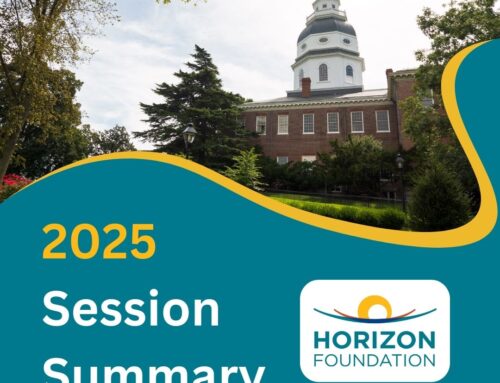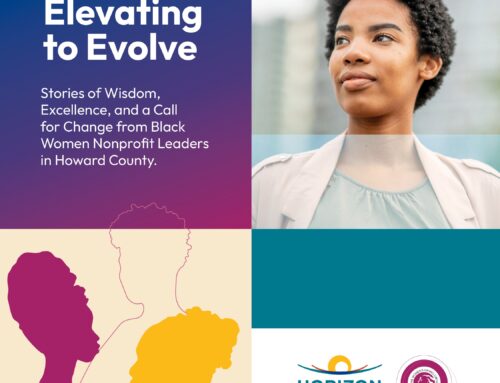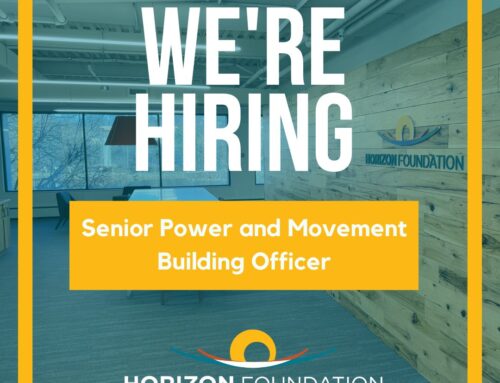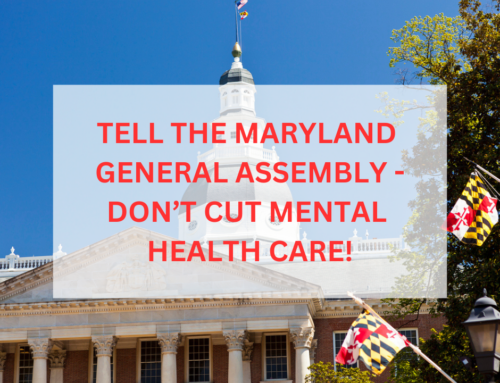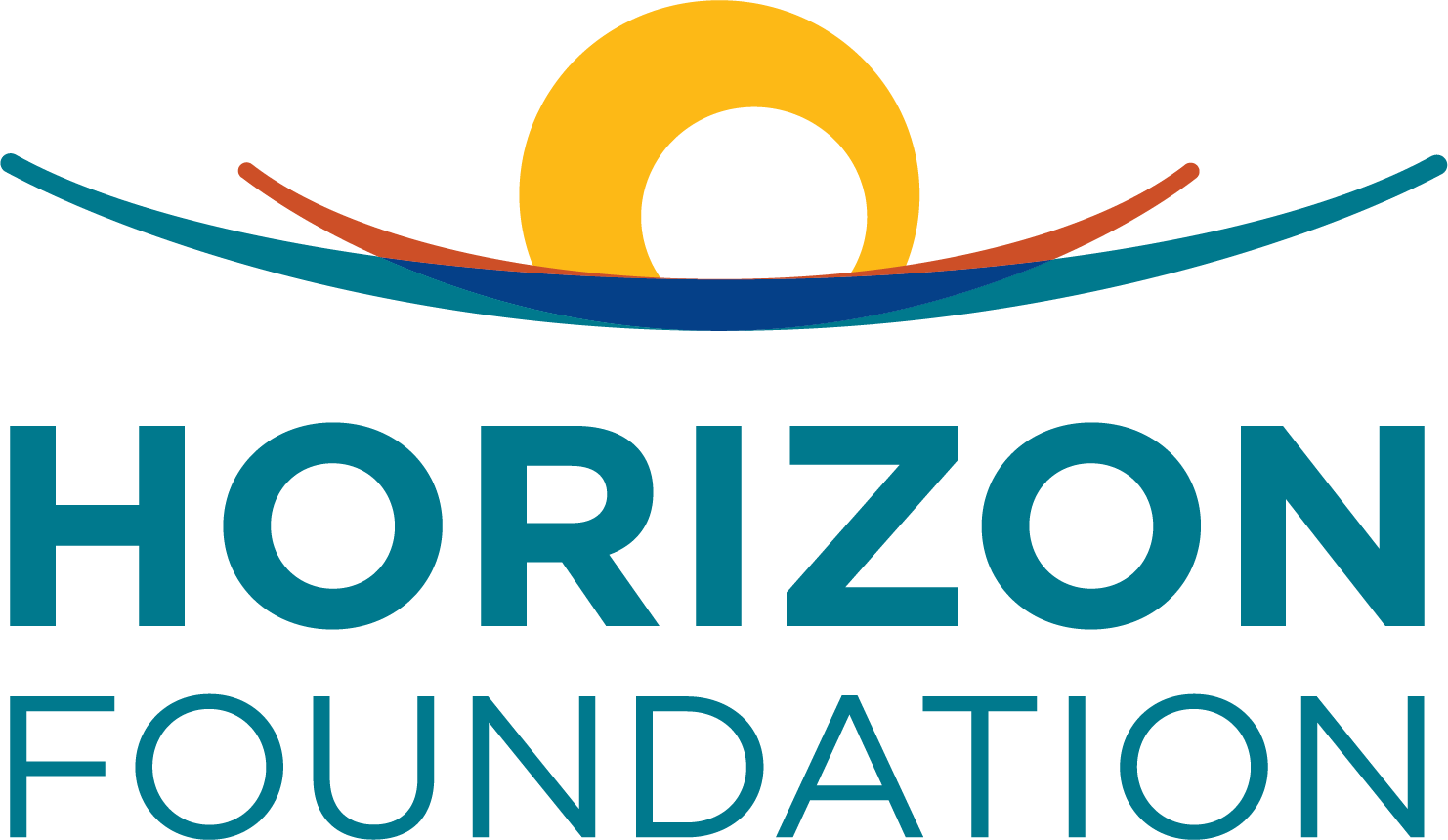Tiffani Peguese didn’t set out to be an advocacy leader. As an educator in the Howard County Public School System (currently the Black Student Achievement Program (BSAP) Liaison and DEI Liaison), her focus was always on the children in front of her.
“Everything I do in my job is about touching people individually,” Peguese says. “My focus was always, ‘How can I help this individual?’”
Having dedicated her career to working with youth, over time, Peguese began to notice some worrying themes in how students were talking about themselves and their lives. It was clear that many students of hers were dealing with trauma but did not have the tools to express their emotions in a healthy way – causing them to struggle behaviorally and academically as a result. Moreover, she felt schools were not set up to properly address, as she called it, the “whole child.”
Enter B.FLY Collective (standing for Forever Love Yourself, Fiercely Love Yourself and First Love Yourself) – Peguese’s youth mentoring organization that works to create safe spaces to teach children the fundamentals of self-love, self-compassion, and social responsibility. Through various programs and workshops with students and their parents, Pegeuse’s vision is to help children – especially children of color – grow up into emotionally mature adults by helping them be true to who they are, set and accept boundaries, and be able to stand in their power no matter the challenges life throws at them.
“All of this was birthed through COVID and after seeing George Floyd get killed,” says Peguese. “Young people have a lot of trauma they bring to school, and yet we expect them to come in and learn. I am a firm believer in that we have to put kids before the curriculum. Through our programs, they come in and they talk and hopefully I can help guide them through the day.”
Though B.FLY’s work is critical in helping students learn how to deal with trauma, mental health, and other challenges, Peguese began to realize that more needed to be done. Issues like not being able to access mental health care were systemic, not due to any fault of an individual student or their families. And barriers were greatest for her students of color.
“Systemic barriers are interdependent and compound on each other – things like cost, stigma, transportation, even trying to find a therapist. Private therapists can be booked for 6-8 months out, so what do we do in the interim? Having the services in school would be so much easier. There is a huge need.”
Howard County continues to see stark racial disparities in mental health, especially among Black and Latino residents. In 2014-2016, suicide was the leading cause of death for youth ages 15-19 in Howard County.[i] Among these youth, young Latina women are most at risk of depression and planning a suicide. Nearly 50% of Latina high schoolers and 42% of multiracial female high school schoolers said they felt sad and hopeless in comparison to 23% of White students and 26% of Black students.[ii]
National data shows that the COVID-19 pandemic both highlighted these existing disparities and exacerbated the youth mental health crisis altogether. According to a study from the Centers for Disease Control and Prevention, in 2021, more than a third (37%) of high school students reported they experienced poor mental health during the pandemic, and 44% reported they persistently felt sad or hopeless during the past year.[iii]
In order to make new connections and learn how to take her work to the next level to address some of these concerns, Peguese applied for the Horizon Foundation’s first-ever Advancing Community Advocacy Fellowship in 2020. At the time, this was a brand-new endeavor for the Foundation to work with fellows to advance important policy issues.
Working with Foundation staff, Peguese learned about topics like mobilizing and organizing around a variety of issues, but mental health remained her passion. The Foundation had been working on improving access to mental health care for several years and had launched a pilot program with the Howard County Public School System to offer enhanced school-based mental health supports, including 1:1 counseling, to students during the school day. Eventually, her Fellowship zeroed in on expanding that pilot program to ensure more kids could access the mental health support they needed.
“I had no formal training, no plan,” says Peguese. “I didn’t know much about policy. I knew about the structure of government, but never had gotten involved in working within it. I realized there were things I needed to learn to achieve the goals I wanted.”
Peguese helped form the Mental Health Matters Coalition, which brings together local community organizations and concerned residents to advocate for better mental health services in Howard County schools and beyond. Together, the coalition organized public comments and testimony, contacted local lawmakers, got hundreds of signatures on petitions, and more. In 2022, Peguese and the Coalition achieved their biggest victory to date – with funding from the federal CARES Act and the Howard County government, along with philanthropic dollars from the Horizon Foundation and the Kahlert Foundation, Howard County Executive Calvin Ball announced that the school-based mental health program would be expanding to every public school in the county by the end of next school year.
The program eliminates many barriers to students getting the help they need. Parents don’t need to take off work to get their child to treatment, and students don’t have to miss a bunch of instructional time waiting for and traveling to and from appointments. Currently, over 1500 students are receiving individual counseling. Peguese is already seeing behavioral improvements among her students and their families.
“We are showing that we care about the mental health of our students,” she says. “We are creating a culture of wellness.”
Work remains to ensure the program gets fully implemented across all Howard County schools and that there are an adequate number of providers to provide services. For Peguese, and for the bigger picture, the most important change is still to come.
“My hope is that this becomes normalized,” she says. “In a way, COVID helped – it slowed us down and forced us to take a deep dive into who we are as a society and as a people. We need to be intentional in the way in which mental health care is delivered. It’s about getting people to think and talk and normalize having these types of conversations.”
Peguese’s two-year fellowship with the Foundation ended in December 2022, but she remains committed to the ongoing work of the Mental Health Matters Coalition, and to ensuring that school-based mental health continues and meets the rising mental health needs of students. She also continues to work on growing B.FLY Collective and being a resource for her students – all with the organizing and advocacy skills she learned along the way.
“We have to always remember why we’re doing this – for our present and our future.”
——
[i] Howard County Health Department. (2018). Suicide Prevention, Howard County Youth. Retrieved from https://www. howardcountymd.gov/LinkClick.aspx?fileticket=6nrdbJlH7JI%3d&tabid=1390&portalid=0
[ii] Maryland Department of Health, Prevention and Health Promotion Administration. (2016). Maryland Youth Risk Behavior Survey 2016, Maryland High School Survey, p. 14. Retrieved from https://phpa.health.maryland.gov/ccdpc/Reports/Documents/2016%20YRBS%20YTS%20Reports/2016HowardHS%20Summary%20Tables.pdf. Note: The original source for these data (Maryland Department of Health’s Youth Risk Behavior Survey) breaks data down by the following categories: White, Black, Hispanic/ Latino, All Other Races and Multiple Races. This explains the lack of information on Asians in this segment of the report. We recognize this lack of differentiation is a common problem with public health statistics and underscores the need for more robust practices in disaggregating available data.
[iii] Centers for Disease Control and Prevention (2022). “New CDC data illuminate youth mental health threats during the COVID-19 pandemic.” https://www.cdc.gov/media/releases/2022/p0331-youth-mental-health-covid-19.html

